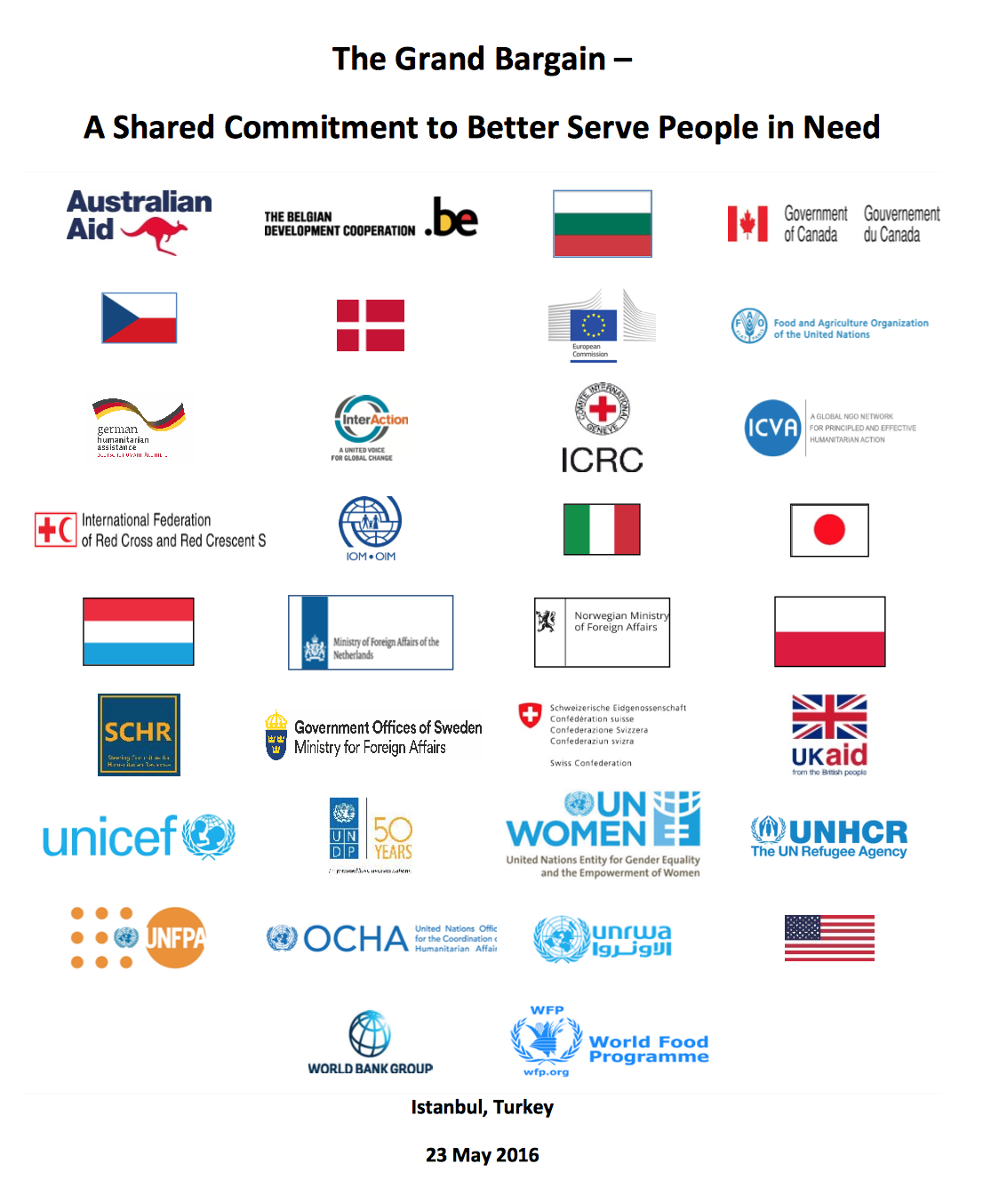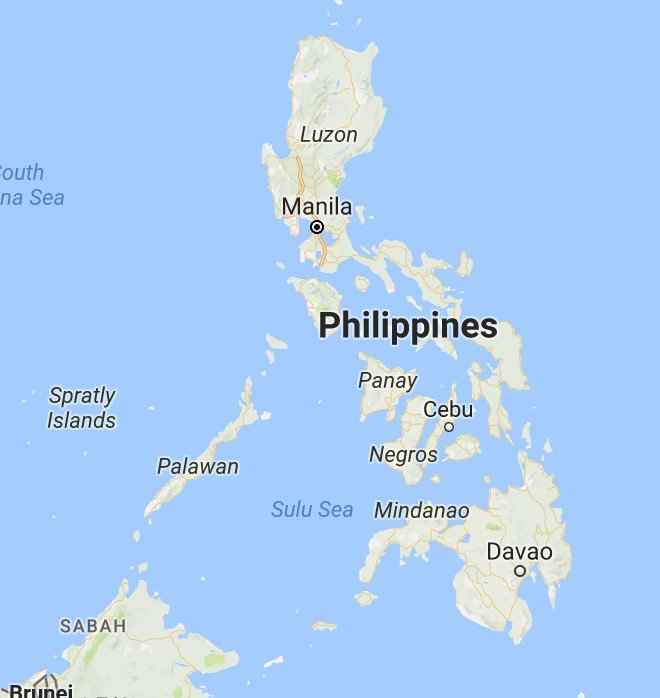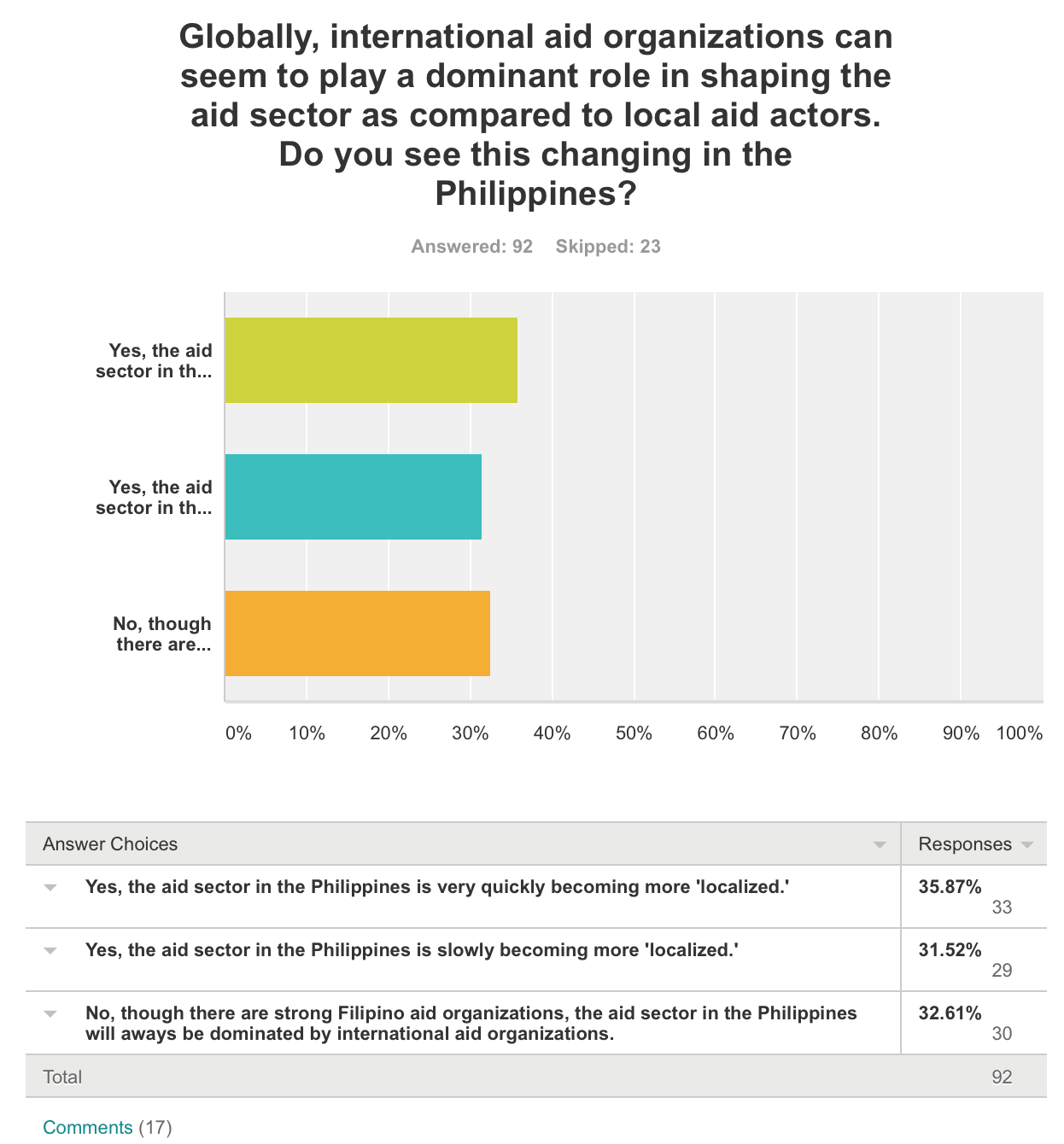“Aside from local donors, the funding source come from the international aid organization. Genuine partnership between local and international organization is still a work in progress.”
-female aid worker, working for national organization (HQ based in the Philippines)
The Grand Bargain
How can we move toward a sector that is more ‘localized?’ With some fanfare this question was addressed last May at the World Humanitarian Summit in Istanbul. Although some have stressed that The Grand Bargain was intended for mostly aid work -response to natural and human made disasters, etc.- the language infers that there remains a blurring between ‘aid’ and ‘development’ work. One passage reads,
 “Its purpose is to ensure that we are able to anticipate and prepare for crises, that we can deliver protection and assistance better to the most vulnerable and that we can restore opportunity and dignity to them.”
“Its purpose is to ensure that we are able to anticipate and prepare for crises, that we can deliver protection and assistance better to the most vulnerable and that we can restore opportunity and dignity to them.”
Within the Grand Bargain document policy commitment number 7 (of 10) promises to, “Increase collaborative humanitarian multi-year planning and funding” making it clear that progress will be measured in long term.
And so, looking toward the Philippines, one wonders what modifications in the relationship between the “big box” INGO’s and the local humanitarian sector will be apparent if (sadly, more likely when) the next season brings another Yolanda.
Although it is seductive to take a one country or region narrow view, the humanitarian ecosystem is global, and what happens locally will always be impacted by larger, global forces. One analyst sums up the big picture thusly,
“The debate over humanitarian reform is one of money, principles, and institutional change. But for many organisations involved, these boil down to one thing: power – and specifically for local organisations, the unwillingness of their international counterparts to give up any of it.”
Another speaks of the “Faustian nature” of the Grand Bargain and warns that local NGO’s better “Be careful what [they] wish for.”
Another statement in the document addresses the fear that the Grand Bargain is only about thew ‘bog players’ and optimistically presents the argument that,
“… an understanding inherent to the Grand Bargain is that benefits are for all partners, not just the big organisations.”
So, what of our data from the Philippines? How is the Grand Bargain’ movement toward a more ‘localized’ sector working out so far?
Work in progress
What I see from the data below is strong evidence that ‘localization’ of the sector is, I’ll hazard, on course, with well over a third of the respondents -36%- agreeing that “Yes, the aid sector in the Philippines is very quickly becoming more ‘localized.'” If you combine that number with those who see change happening, but more slowly, you have a total of 68%. That one third -33%- did not see any change is significant, and merits deeper attention. The data as a whole for this question may well be an indication that there were likely varying interpretations of both “change” and “localization.”
Local aid worker voices
This was one of several questions where we invited comments. The offering below is specific to the Philippines, of course, but what is said may be true of many places around the globe. More progress toward ‘localization’, it is inferred, demands increased levels of governmental accountability and action. Alternately, INGO’s with their support create governmental dependency. Or both.
“The aid sector proliferates in my country because our own government consistently fails to address the many problems that beset our country. As long as many of our people are poor and remains to be poor, there will always be non govt devpt orgns who will be dependent on foreign aid and donations to fund their projects and to keep their orgns afloat.”
This respondent hits the dependency point directly,
“After decades of ‘partnership’ local groups are so dependent, financially and programmatically, to foreign groups.”
to foreign groups.”
Why is the ‘localization’ progressing as well as it is? This respondent had an answer,
“In my organization, at least, the benefits of having local aid workers is clear: better familiarity with local culture and language, greater likelihood of staying in the organization in the long run, etc. There has been a concerted effort to hire more locals from top to bottom.”
This last comment tempers the above view, pointing out that indeed ‘localization’ is still a work in progress,
“International aid organizations still have a long learning curve. While staff composition is becoming localized, key power holders are still expats and decision making is still with global HQs.”
Progress? But how?
So, at least in this corner of the world -the Philippines- there appears to be some progress toward localization, but without longitudinal data we have no grounds to argue for any kind of consistent direction. Perhaps another survey in a year would be in order.
My read of the data indicates there seems to be some progress, but one must ask ‘what factors, policies, etc. allowed it to happen?’ and also ‘how can this one specific location tell us about how to proceed forward in other locations toward the goal of localization?’
I am very sober to the fact that our sample of Filipino aid and development workers is very limited and that we have raised far more q uestions than we have answered. More work needs to be done. More comment and analysis soon.
uestions than we have answered. More work needs to be done. More comment and analysis soon.
All for now on this question, in the meantime contact me if you have questions or comments.



 Follow
Follow